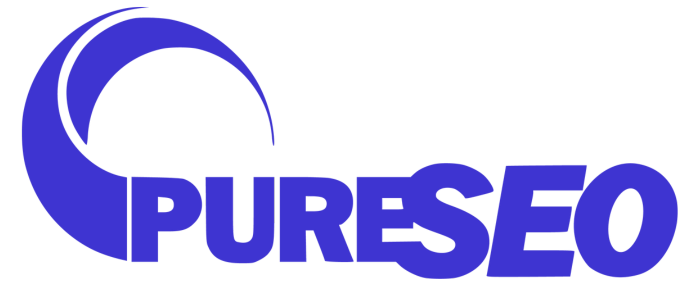
Domains no longer directly influence SEO performance, but domain trust and domain authority remain crucial for your broader SEO strategy. Check out our comprehensive guide below to better understand domains, the importance of measuring domain authority for SEO, and how to measure it.
Get your SEO on track, leverage your domain to increase rankings and get on the Search Engine ladder to success.
Tools to Measure Domain Ranking and Trust
When discussing how a domain ranks, SEO professionals will mention that it is a comparative metric rather than an absolute one. Larger websites with more complex backlinks must work harder to improve their domain ranking, and higher rankings will be harder to improve.
Over the years, we’ve seen several tools to measure domain ranking and its impact on a website’s SEO. While Google has now phased out its Page Rank algorithm, tools such as MOZ continue to offer insights into the SEO operation of website domains. Here, we explore the history and current state of domains’ SEO impact and the tools surrounding it.
The Rise & Fall of the Google Page Rank Algorithm
Google’s PageRank algorithm has many moving parts that can be hard to grasp. In terms of domain efficiency, Google PageRank looked at the quality and quantity of links, in-bound and external links from your domain, and the domain from which the links are directed. It uses this to build a score from one to ten, with 10 being the highest authority.
Google removed the PageRank tool from their toolbar in 2016. This was most likely due to SEO specialists using it to manipulate their sites’ authority and was not serving website owners as public knowledge. Instead, other tools such as Moz and Ahrefs have created their own systems to measure domains.
MOZ Domain Authority Score
Domain Authority refers to the likelihood that your domain will rank on Search Engine Results Pages (SERPs) compared to other sites. It is a unit of measurement concocted by Moz to measure how well your SEO is working (or not working).
Domain Authority is measured on a scale of 1-100 and bases its results on data gathered, interpreted, and scaled by a machine learning model. As a result, your Domain Authority will fluctuate as more data becomes available. It also relies heavily on links. This can be quality linking roots, backlinking, or link equity.
Again, Domain Authority will work differently for websites with many users or consistent content uploads. A website that has the capacity for creating millions of backlinks in a short amount of time is no match for a smaller website that relies on a steady amount of quality linking. A good example is Twitter. Twitter can create a huge number of backlinks and impressions within minutes or even seconds, leaving it with formidable domain authority.
Ahref’s Prioritises Backlinking in Domain Rating
Ahref’s Domain Rating shows the strength of a website’s backlink profile. It is measured slightly differently from Moz’s Domain Authority in that it accounts for how many domains are sending at least one -do-follow link to the page, as well as those sites linking to unique domains.
Knowing your Domain rating allows a better idea of the quality of a domain’s backlinks so you can work a strategy around this.
Common Factors Affecting Domains
Quality Backlinks
The quality of the websites carrying your domain’s backlinks is important. If a Search Engine perceives the sites housing links to your domain as untrustworthy or poor, this will impact your domain ranking. A domain backlink audit is a great way to grasp who is providing traffic to your domain.
Clever Internal Linking
Good internal linking will improve a domain’s link equity and the trustworthiness of that URL. Having prominent keywords link to relevant pages will impact search engines’ perceptions of a domain’s relevance to certain queries.
Domain Trust & Engagement
You build domain trust by establishing yourself as an authority within a given subject area. For example, one of the most trusted sources of information during the height of the COVID-19 pandemic was the government. Therefore, a .govt in your domain name could help you gain trust and authority.
Search Engines also play a role in determining the trustworthiness of your domain name, largely by assessing how meaningful user interactions are. Meaningful interactions rely on quality content and the perceived security of a website. Websites within the world of ‘Your Money Your Life’ (YMYL) matter here, as they deal with sensitive user information. A site is more likely to rank higher if it can convince a search engine of legitimacy through domain trust.
SEO Best Practices for Domains
You have several options to leverage your domain and influence SEO rankings. Much of this will rely on other elements of your SEO implementation, but it doesn’t denigrate the importance of optimising your domain.
Improving domain ranking can be an elusive beast, but there are methods to wield it into a more controlled tool. Ways to improve your website’s authority and trust include:
- Ensuring a healthy number of backlinks from both internal and external sources
- Providing a steady amount of meaningful and engaging content
- Protecting user information with server security, including SSL certificates
- Utilising the power of your brand, incorporating recognisable brand elements within your domain to attract users who know and trust your company.
- Examining your website’s overarching SEO, including metadata, URL, keyword optimisation, and web page layouts.
Just because a website improves its SEO, however, doesn’t mean its domain rank will increase. Because it is a comparative metric, the actions of competitors’ websites will continue to impact its score. If another website’s SEO game has improved more quickly, your website may remain stagnant in its ratings.

















